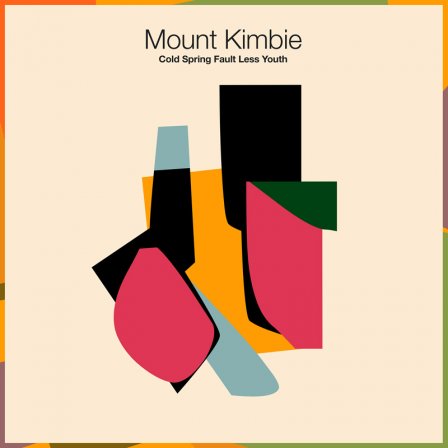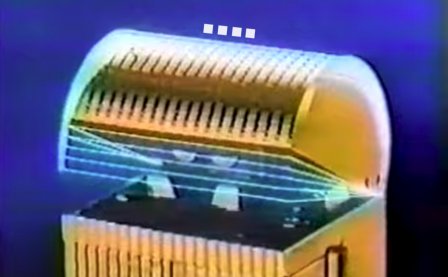In the late aughts, Mount Kimbie — the British electronic duo of Kai Campos and Dom Maker — rose to prominence as part of the “post-dubstep” movement. From the start, this classification was a problematic one, reductive in its aim to connect the contemporaneous yet aesthetically distinct musical works of a group of young British producers. Although lines can perhaps be drawn between the early work of Mount Kimbie — culminating with their 2010 debut album, Crooks & Lovers — and releases by fellow purveyors of “post-dubstep” such as James Blake, it hardly seems productive to pursue such a path (earlier this year, Campos and Maker voiced their concerns about this tendency of critics to contrive an easy musical narrative). Rather, Mount Kimbie and their peers have followed unique, idiosyncratic paths over these past few years; the group’s sophomore LP Cold Spring Fault Less Youth — in a similar way to James Blake’s gorgeously refined second album Overgrown — finds them furthering their sonic explorations, naturally and comfortably progressing.
Album opener “Home Recording” begins with analog hiss and a knotty set of saxophone harmonies that reluctantly resolve into a descending keyboard line, soon joined by rattling percussion and Campos’ own emphatic, unpolished vocals. The track ebbs and flows wonderfully, ultimately serving as a fitting introduction to the scrappy, organo-electronic aesthetic that Mount Kimbie etch out over the course of Cold Spring. The pair applies this same winsome formula to “Made to Stray,” the album’s lead single and another major highlight. Over the majority of the track, Campos and Maker develop a deep, intricate groove built around a crackling, tactile beat and a melancholic chord progression. The sudden entry of Campos’ raw vocal refrain is jarring at first, but the mantra that he repeats for the remainder of the track is both memorable and satisfying on some fundamental level.
Cold Spring also sees the duo collaborating with rising British producer/singer and general hype magnet King Krule on several tracks. “You Took Your Time,” the first Krule feature, melds the musicians’ unique voices marvelously: the duo provides a sharp, incisive beat that serves as a perfect backdrop for Krule’s confrontational rap-croon. The song unfolds organically, building to its dramatic conclusion in a way that feels natural and logical; unfortunately, some of the other songs on Cold Spring, particularly in the album’s latter half, don’t quite do the same. The other Krule collaboration, “Meter, Pale, Tone,” just doesn’t hit with the same intensity as “You Took Your Time;” some of the individual elements — such as the swirling drum pattern and synthesized arpeggiation that accompany Krule’s vocals — are intriguing, but they don’t develop in a particularly meaningful way over the song’s duration.
Other moments on the album simply seem unfinished. Much like “Meter, Pale, Tone,” many of these songs see Campos and Maker presenting compelling musical ideas that simply aren’t expanded upon in an equally compelling manner. Still, Mount Kimbie frequently succeed here in capturing inspired, stirring musical ideas — just listen to the outro of “Break Well,” a gorgeous passage that I would love to see developed for minutes longer. Above all else, this album sees the band continuing its unique musical evolution, pushing even further past the “post-dubstep” pandering of yore. If Campos and Maker continue to hone their compositional intuitions in the future, I am hopeful that Mount Kimbie can build something impressive from the aesthetic that they have carved out with Cold Spring Fault Less Youth.
More about: Mount Kimbie




